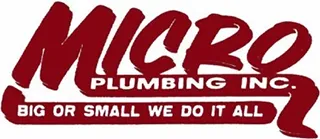FREQUENTLY ASKED QUESTIONS
Whether you have questions about clogs, sump pumps, or sewer repairs, look no further! If you don’t find the answers you’re looking for here, give us a call and one of our expert plumbers will be happy to help you.
DRAIN AND PIPES FAQS
A properly used and properly-installed garbage disposal will not clog your pipes! If you are considering installing a garbage disposal, have it done by a professional plumber so you can be sure the pipes are free from preexisting clogs. To ensure your garbage disposal continues to operate well, only put food particles down the drain you are certain will wash away down the sewage system.
The worst offender when it comes to ruining home garbage disposals is fibrous materials like celery, corn husks, artichokes or any other kind of stringy vegetable. Large amounts of pasta are another culprit for damaged garbage disposal motors.
To prevent a clogged drain, do not let coffee grounds, eggshells, or any other food item wash down your sink. You also want to avoid oils, fats, and grease, as well as hair, paint, car fluids, dirt, and debris.
Our recommendation is to avoid flushing items that claim to be flushable. This includes flushable cat litter and flushable wipes. Do not flush any feminine products!
SUMP PUMP FAQS
Sump pumps are pumps used to remove water that has accumulated in a water-collecting sump basin. They’re most often installed in basements.
We don’t recommend connecting it to the sanitary sewer line, but a lot of folks connect their sump pump to storm sewers without it causing any issues. If you connect your sump pump discharge to the sanitary sewer, you’re risking water and sewer damage to your home and it is actually illegal in much of the US to do so.
A submersible sump pump sits below water level inside the sump basin. Overall, a submersible sump pump is going to be quieter, less obtrusive, and safer than other options. They also are easier to handle, more efficient and longer lasting.
A pedestal sump pump is best for small pits that don’t have room for a submersible pump and its piping inside the pit. The motor is mounted high so it is easier to access and repair. We can help you decide which sump pump is best for your home!
You don’t want your basement to flood or even to collect too much moisture, as this can damage your foundation and lead to costly repairs. It also cuts down on mold and mildew and keeps your basement a little fresher.
WATER HEATER FAQS
There are five main types of water heaters.
- Conventional storage tank water heaters hold water that is to be heated. It means the amount of hot water you have access to at once is limited by the capacity of the tank. This is the most common type of water heater in family homes.
- Tankless water heaters utilize super-heated coils that fill with water and heat the water quickly when you need it – so you may hear these referred to as “on-demand water heaters.” Tankless water heaters do come in different sizes with different power demands. They can run on gas or electric.
- Heat pump water heaters, or hybrid water heaters, utilize heat in the air and the ground to heat your water. This means electricity is only used to move heat rather than generate heat, so they use about 60% less electricity than a traditional water heater.
- Solar powered water heaters are a good option if you already have solar panels generating power for your home. They’re a good option for warm, sunny climates but do often require a backup plan for energy in case the weather doesn’t cooperate.
- Condensing water heaters are great if you use primarily natural gas for your home’s energy. It funnels heated exhaust from the natural gas system and uses it to heat the water, which is held in a tank.
As we explored above, one of the most important factors in your water heater purchase is the fuel source you will be using. Different water heaters will give different results based on whether you’re using electricity, natural gas, or solar power. Your hot water usage is another important factor as you want to make sure your choice in water heater can keep up with your demand.
As with most things, proper maintenance is key to a long life. We recommend flushing your water heater at least once per year and contacting a professional if you notice any problems or changes in your hot water availability.
